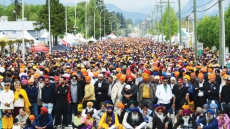During times of celebrations and festivals, these connections become amplified and bonds are nurtured.
A heart-to-heart talk with your best friend, an exchange of laughter with the store cashier, a video shared on the family WhatsApp group: as social animals, humans thrive on connection. It is widely accepted in psychology, that after a person’s physiological (water, food, sleep) and safety-oriented (shelter, protection) needs, love and belonging are essential to one’s well-being. Having deep, meaningful relationships and affiliation with a group of people creates a sense of acceptance and helps people feel supported.

During times of celebrations and festivals, these connections become amplified and bonds are nurtured. Be it anything – how your day went today or planning your lifelong career – talking to your loved ones act as a vacuum to take everything out from your head and put it into words. These conversations help people share their experiences with one another and creates a safe space for discussing ideas and issues. Moreover, time spent with others often exposes one to different schools of thoughts, culture, traditions and beliefs, which further develops empathy and tolerance. Being part of such a group can tackle depression, decrease anxiety and stress, combat loneliness and enhance one’s self-perception. In fact, studies show that those with social support from family, friends and coworkers have better health.
Note that not all connections come from intense relationships or family gatherings. Socializing at a work or school Diwali event or even wishing the restaurant waiter ‘Happy Diwali’ is sometimes enough to lift your spirits. This is because we value finding similarities with others, even if they may be different from us. Festivals bring together people from all backgrounds and cultures. Commonalities spark connection and thus a sense of belonging. Playing board games with friends, singing in a choir, babysitting your neighbour’s kids while they go out to celebrate, and helping siblings with a rangoli are all examples of connection through activities that promote social engagement in the name of the festive spirit.

Of course, in the age of social media, the parameters of human connection have drastically been redefined. A very proactive friend on social media, liking all your posts, may totally avoid greeting you in person. This creates grey area surrounding the subject of whether digital connection truly qualifies. While a Diwali text or e-card can revive lost connections, a warm hug can make all the difference. However, introduction of video chatting technologies creates an interesting bridge between the offline and online worlds, often posing as the solution to maintaining connection when distance is the problem. Especially for those who are far from home – in particular, students – video calls are the perfect way to partake in the celebrations overseas.
Surely, everyone has their own frequency when it comes to the level of social connection that is required to maintain a healthy lifestyle, but social connection is vital to survival for all. Interestingly, a theory called The Six Degrees of Separation suggests that we are all just six, or fewer, connections away from each other. In other words, you are a maximum of six introductions away from anyone else in the world – “a friend of a friend” and so on. Undoubtedly, what a small world! This Diwali, let us celebrate each other and the light we illuminate through our connections within the global village.





